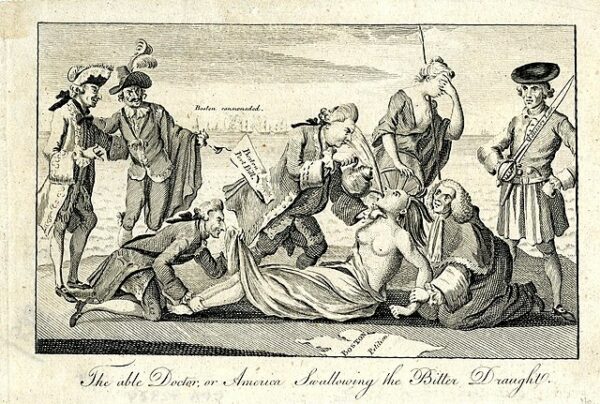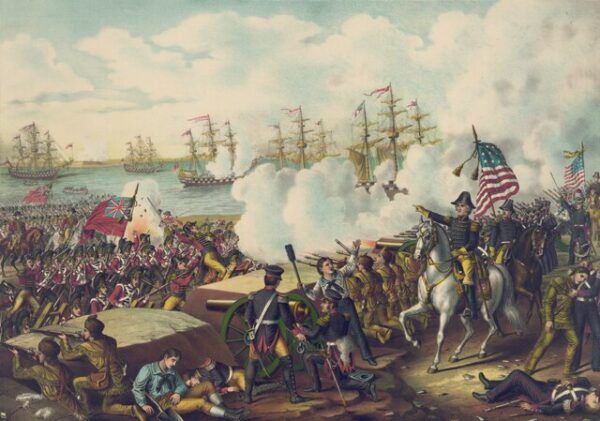On June 2, 1774, the British Parliament passed a series of stringent measures known as the Intolerable Acts, also called the Coercive Acts, aimed at quelling growing unrest in the American colonies, particularly Massachusetts. This decisive action followed the infamous Boston Tea Party of December 1773, where American colonists destroyed a shipment of British tea in protest of taxation policies.
The Intolerable Acts consisted of five laws, each targeting different aspects of colonial governance and autonomy:
The Boston Port Act: This act closed the port of Boston until the East India Company was compensated for the destroyed tea. The blockade crippled the economy of Massachusetts, particularly affecting merchants and workers dependent on maritime trade.
The Massachusetts Government Act: This legislation effectively annulled the colony’s charter and placed Massachusetts under direct British control. It limited town meetings and altered the appointment of council members and other officials, stripping local authorities of significant power.
The Administration of Justice Act: Often referred to by the colonists as the “Murder Act,” this law allowed royal officials accused of crimes in Massachusetts to be tried in other colonies or in Britain. Colonists saw this as a way for British officials to escape justice for abuses committed in the colonies.
The Quartering Act: Although not entirely new, this act expanded the previous Quartering Act, allowing British troops to be housed in a wider range of buildings, including private homes, if necessary. This was seen as an invasion of personal privacy and property rights.
The Quebec Act: While not directly punitive, the Quebec Act extended the boundaries of Quebec and granted religious freedom to Catholics, alarming Protestant colonists and contributing to fears of a centralized and oppressive British regime.
The Massachusetts Government Act particularly dismayed Americans by doing away with the colony’s charter and placing Massachusetts under direct British control. By limiting town meetings and altering the appointment of council members, the act effectively stripped local authorities of their powers. The Administration of Justice Act, dubbed the “Murder Act” by critics, permitted royal officials accused of crimes in Massachusetts to be tried elsewhere, either in other colonies or in Britain. Colonists feared this would allow British officials to evade justice for any abuses committed.
An expansion of previous laws, the Quartering Act authorized British troops to be housed in a broader range of buildings, including private homes if necessary, sparking outrage over the invasion of personal privacy and property rights.
The enactment of the Intolerable Acts sent shockwaves through the American colonies. In a show of unity, the First Continental Congress convened in September 1774, bringing together representatives from twelve of the thirteen colonies. They coordinated a collective response, including a boycott of British goods and the formation of the Continental Association to enforce it.
Prominent figures like Samuel Adams, John Adams, and Patrick Henry were vocal in their condemnation of the Acts, using them to galvanize support for a broader resistance movement. Propaganda and pamphlets circulated widely, urging colonists to stand united against British oppression.
The passage of these acts pushed the colonies towards open conflict with Britain. Increased militarization in Massachusetts, with British troops enforcing the new laws, eventually led to the American Revolution.






